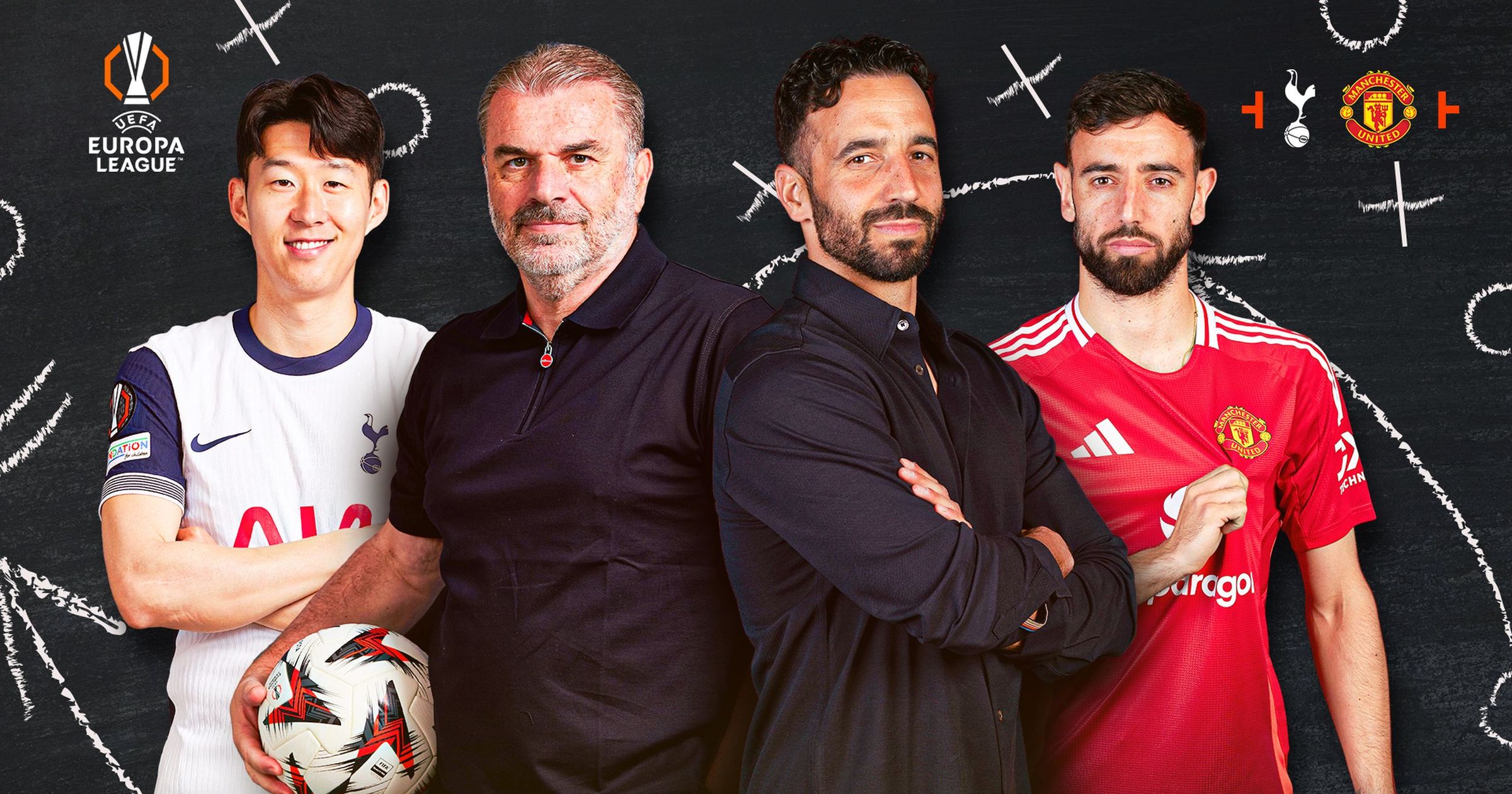
Europa League final: Will Bruno Fernandes be able to find openings for Manchester United? How will Tottenham Hotspur generate scoring opportunities? – tactical inquiries
The Europa League final is nearly upon us, and both Manchester United and Tottenham Hotspur are eager to lift the trophy, especially after their struggles in the Premier League this season.
The match, set to be broadcast live on TNT Sports and discovery+ on Wednesday night, promises to be a captivating encounter. The tactical battle between managers Ange Postecoglou and Ruben Amorim will be particularly intriguing, as both have a distinct style they adhere to.
Injuries have plagued both teams, presenting unique challenges and potential tactical adjustments. How these factors will influence the game remains to be seen, and there are several tactical questions and battles to consider.
Can Bruno find the space?
Despite Manchester United’s inconsistency this season, Bruno Fernandes has been a standout performer. The captain has netted eight goals and provided nine assists in the Premier League, along with seven goals and four assists in the Europa League, making him the team’s most influential player.
Fernandes thrives in Amorim’s 3-4-3 formation, which, while not as successful as hoped in its inaugural season, has allowed him to shine. His role as a hybrid winger/attacking midfielder creates challenges for opposing teams, as it becomes difficult to mark him effectively.
Tottenham’s likely response will be to assign one of their midfielders, probably Yves Bissouma or Rodrigo Bentancur, to track Fernandes closely. The question then arises: how will Fernandes find the space? His intelligence and influence on the pitch mean that Spurs must pay him the respect he deserves, making it fascinating to see how he navigates the game.
How do Spurs create chances?
For Tottenham, the situation is more complex. They have been more efficient in attack than United, but the absence of key creators James Maddison and Dejan Kulusevski due to injury is a significant setback. Their injuries, along with Lucas Bergvall’s absence, leave Spurs without three of their top five assisters in the Europa League this season.
In light of this, Spurs may need to adapt by deploying Heung-min Son as the No. 10. Although Son is having a quieter season by his standards, he remains a crucial player for Spurs and understands the importance of this match.
By positioning Son centrally, Spurs can alleviate some of the physical demands on him and surround him with runners like Richarlison, Dominic Solanke, and Brennan Johnson, allowing him the space to operate.
If Postecoglou opts for a more adventurous approach, he might consider shifting to a 4-3-3 formation, bringing in players like Pape Matar Sarr or Archie Gray. However, this could lead to a more defensive midfield setup, potentially limiting creativity but allowing full-backs Destiny Udogie or Pedro Porro to push forward.
What kind of game do these teams want it to be?
This leads us to a broader question: what type of game do both teams want to play? This is particularly pertinent for Postecoglou, as Amorim has noted that Spurs have a clear identity and are unlikely to change their approach.
Opting for a more defensive midfielder instead of moving Son inside may not alter Postecoglou’s style, but it could allow him to control the tempo of the game. Shutting down Fernandes will be crucial for United’s attacking strategy, and as Athletic Club discovered in the semi-finals, being too open against Amorim’s side can lead to punishment.
For Amorim, the key question is how much pace he wants in his team. While Spurs are generally a slower side, there are opportunities for pace, particularly in the attacking midfield area, where he must choose between Alejandro Garnacho and Amad Diallo.
With Cristian Romero, Micky van de Ven, and Udogie performing well this season, Amorim’s decisions in this area could significantly impact the match’s outcome.
Who can cope with their injuries best?
Injuries are an unfortunate reality as the season draws to a close, and both teams are feeling the effects. How they manage these absences will likely play a crucial role in determining the final’s victor.
For Spurs, the loss of Maddison and Kulusevski is a major blow, placing additional pressure on Son and the remaining midfielders to create opportunities.
United, on the other hand, face concerns in central defence, with Matthijs de Ligt and Leny Yoro both uncertain for the final. Additionally, Diogo Dalot’s fitness is in question, and he could provide valuable options as an attacking wing-back or as cover in defence.
If Amorim sticks to his three central defenders, questions remain about who will partner Harry Maguire and likely Victor Lindelof. It may even come to a point where a midfielder has to drop back into defence. The anticipation is palpable as we await the unfolding of this thrilling encounter.
